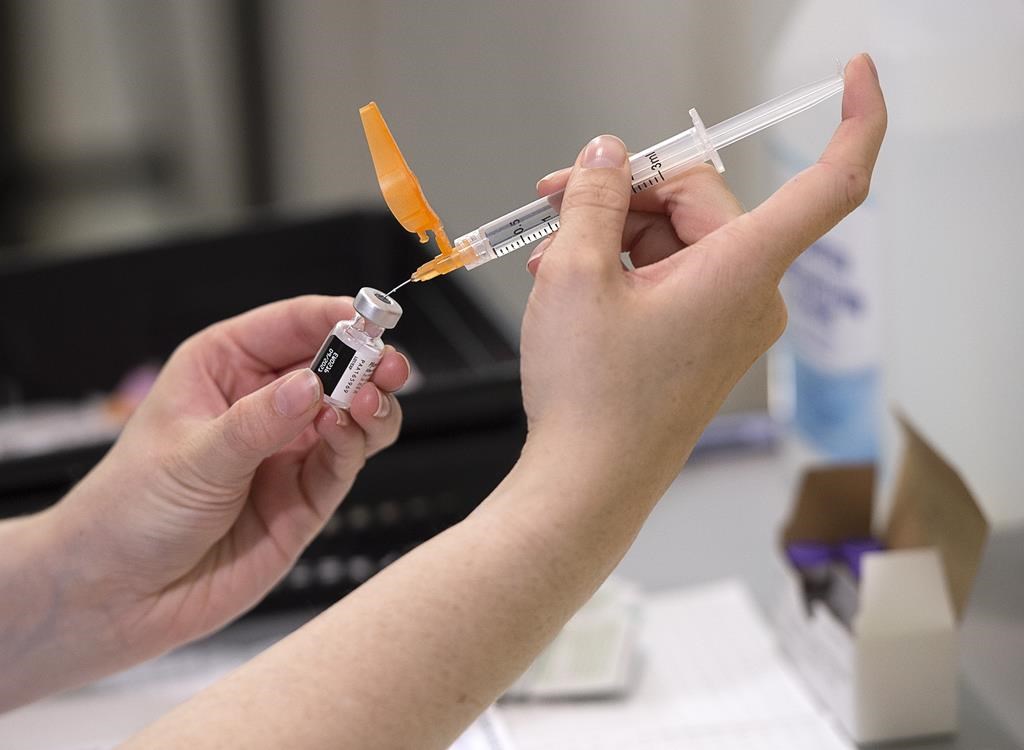Even with high immunization rates, unvaccinated people threaten the safety of people vaccinated against the COVID-19 virus, suggests a new study published in the Canadian Medical Association Journal.

“We’ve really tended to forget that we’re in a pandemic of a communicable disease, which means that our actions affect those around us,” Dr. David Fisman, the study’s coauthor and professor of epidemiology at the University of Toronto’s Dalla Lana School of Public Health, told Global News.
Published April 25, the study uses an infectious disease model based on the province of Ontario to reproduce the interactions between vaccinated and unvaccinated subpopulations in a mostly vaccinated population.
“We use models in a lot of different ways,” said Fisman. “They’re just simplified versions of reality.”
This particular model, used different mixing techniques to understand how infection rates differ between those with and without the jab.
The models parameters included vaccine effectiveness, a baseline immunity in unvaccinated people and an infection recovery rate, among others.
Attack rates among those who are vaccinated against COVID-19 were highest when they were randomly mixed within the unvaccinated subpopulation. They were lowest when they were surrounded by others who are also vaccinated.
“Humans do not mix randomly. (They) exhibit a tendency to interact preferentially with others like themselves, a phenomenon referred to as ‘assortativity,’” the research stated.

“People’s friends tend to be similar in age or people may hang out with the same sex. They may hang out with or attract more people from their own socioeconomic group, their own ethnic group,” said Fisman.
“That also turns out to be really important in terms of people’s decision to get vaccinated against COVID,” he added.
For the unvaccinated, attack rates were lowest when mixing amid the vaccinated subpopulation.
“When you have a lot of mixing between vaccinated and unvaccinated people, the risk for unvaccinated people actually goes down,” said Fisman. “Vaccinated people become a buffer when you have a lot of mixing and risk in vaccinated people goes up.”
- N.S. mom calls for better ultrasound access after private clinic reveals twins
- ‘Unprofessional’: Couple waits hours at a hospital to see a doctor who wasn’t there
- 3 women diagnosed with HIV after ‘vampire facials’ at unlicensed U.S. spa
- Solar eclipse eye damage: More than 160 cases reported in Ontario, Quebec
At this stage in the COVID-19 pandemic, public health officials like Kieran Moore and Bonnie Henry have been promoting everyone to manage the virus “at their own risk,” according to Fisman.
“(However), at the end of the day, this is about collective action. Unfortunately, in a communicable disease system – we’re all connected and that’s why we have to rely on public health for things like this,” Fisman said.
“The decision to get vaccinated can’t be framed as just a matter of personal choice because it has implications for the safety of other people in the community,” he added.
The authors’ findings remained consistent even when they modelled lower levels of vaccine effectiveness, such as in those who have not received a booster dose or with the new variants of the virus.
Afia Amoako, coauthor of the study and second-year PhD student at the University of Toronto, said it’s unfortunate that vaccination has become so “politicized.”
“Now our health care system is struggling,” she said.
Ontario, Canada’s most populous province, estimates the surgery waitlist has grown to between 225,000 to 250,000 patients. Nova Scotia Health currently has about 27,000 patients waiting for surgery.
In Quebec, the most recent data shows at least 160,000 residents waiting.
Data from the Public Health Agency of Canada also showed hospitalizations due to COVID-19 rose about 18 per cent across Canada between April 4 and April 11 to 6,020 people needing beds.
Earlier this month, Dr. Saqib Shahab, Saskatchewan’s chief medical officer of health, said the bulk of hospitalizations in the province were being driven by people who remained unvaccinated or who were vulnerable and hadn’t received a shot.
That aligns with data from the Public Health Agency that shows as of March 27, people with three doses of vaccine made up about 10 per cent of hospitalizations Canada-wide, while the unvaccinated accounted for 61 per cent. About 20 per cent of patients had two shots.
“Being fully vaccinated in any age group and getting boosted protects you from hospitalization,” Shahab said. “COVID-19 is not something that’s going to go away.”

Health Canada says people who are vaccinated are significantly protected from severe outcomes from COVID-19, which include hospitalization and death.
It found that throughout March cases among the unvaccinated were eight times more likely to end up in hospital and 11 times more likely to die compared with the fully vaccinated who had received a booster shot.
“The history has told us time and time again how important it is. We look to history to see that everyone has a role to play,” said Amoako, referencing smallpox and measles. “It’s very much a collective thing.”
Figures from the federal government show that about 57 per cent of Canadians 18 and older are fully vaccinated with an additional dose, while 47 per cent of the total population have received the COVID-19 booster.
Newfoundland and Labrador, the province with the highest vaccination rate in the country — 91 per cent of its population with two shots — has 55 per cent of its people with a third dose.
Dr. Theresa Tam, the national chief public health officer, has urged Canadians 18 and older to get boosted because of a recent surge of COVID-19 cases due to the more transmissible BA. 2 variant.
“Whether you call it the sixth wave or not there’s an increase which is being seen in most areas across Canada,” Tam said earlier this month.
She said the booster is also recommended for those who have recently been infected with COVID-19.
— With files from the Canadian Press






Comments